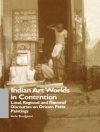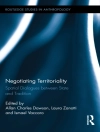- Strong focus on environmental physiology, abiotic stress and breeding more abiotic stress-resistant varieties
- Reviews range of advanced marker-assisted breeding techniques, including gene editing
- Discusses key advances in the value chain to improve resource use for more sustainable production
Innehållsförteckning
Part 1 Physiology and breeding
1.Environmental physiology of ornamental plants: John Erwin, University of Maryland, USA;
2.Exploiting the genetic diversity of ornamentals: Yoo Gyeong Park, Gyeongsang National University, Republic of Korea; Young Hoon Park, Pusan National University, Republic of Korea; Abinaya Manivannan, National Institute of Horticultural and Herbal Science, Republic of Korea; Prabhakaran Soundararajan, National Institute of Agricultural Science, Republic of Korea; and Byoung Ryong Jeong, Gyeongsang National University, Republic of Korea;
3.Advances in conventional breeding techniques for ornamentals: Traud Winkelmann and Philipp Braun, Leibniz Universität Hannover, Germany; and Emmy Dhooghe and Johan van Huylenbroeck, Flanders Research Institute for Agriculture, Fisheries and Food, Belgium;
4.Advances in tissue culture techniques for ornamental plant propagation: G. R. Rout, Odisha University of Agriculture and Technology, India; and S. Mohan Jain, University of Helsinki, Finland;
5.Advances in molecular breeding of ornamentals: Neil O. Anderson, University of Minnesota, USA;
6.The use of gene-editing techniques in breeding improved ornamentals: Bruno Trevenzoli Favero, Josefine Nymark Hegelund and Henrik Lütken, University of Copenhagen, Denmark;
7.Advances in abiotic stress-resistant varieties of ornamentals: Qiansheng Li and Mengmeng Gu, Texas A&M Agri Life Extension Service, USA;
8.Improving nutrient management in the cultivation of ornamental plants in greenhouse, container and field production: John Majsztrik, Clemson University, USA and James S. Owen Jr., USDA-ARS, USA;
Part 2 Cultivation techniques
9.Advances in irrigation practices and technology in ornamental cultivation: John D. Lea-Cox, University of Maryland, USA;
10.Advances in protected cultivation of ornamentals: James E. Faust, Clemson University, USA;
11.Diseases affecting ornamental geophytes and their control: Gary A. Chastagner and Andrea R. Garfinkel, Washington State University, USA;
Om författaren
Dr Michael Reid is Emeritus Professor of Environmental Horticulture in the University of California-Davis, USA. Professor Reid is also Leader for Technology and Innovation at the US Feed the Future Innovation Lab for Horticulture which seeks to support smallholder horticulture in the developing world. He has an international reputation for his work on understanding senescence in cut flowers and how this understanding can be used to maintain post-harvest quality. Amongst his Awards are the Alex Laurie Award from the American Society for Horticultural Science and the Alan Armitage Award from the Speciality Cut Flower Growers Association. He has authored over 250 publications, is former Editor-in-Chief of Scientia Horticulturae and has worked with growers in Europe, Asia, Australia, New Zealand, Africa, Central and South America as well as in the USA.












